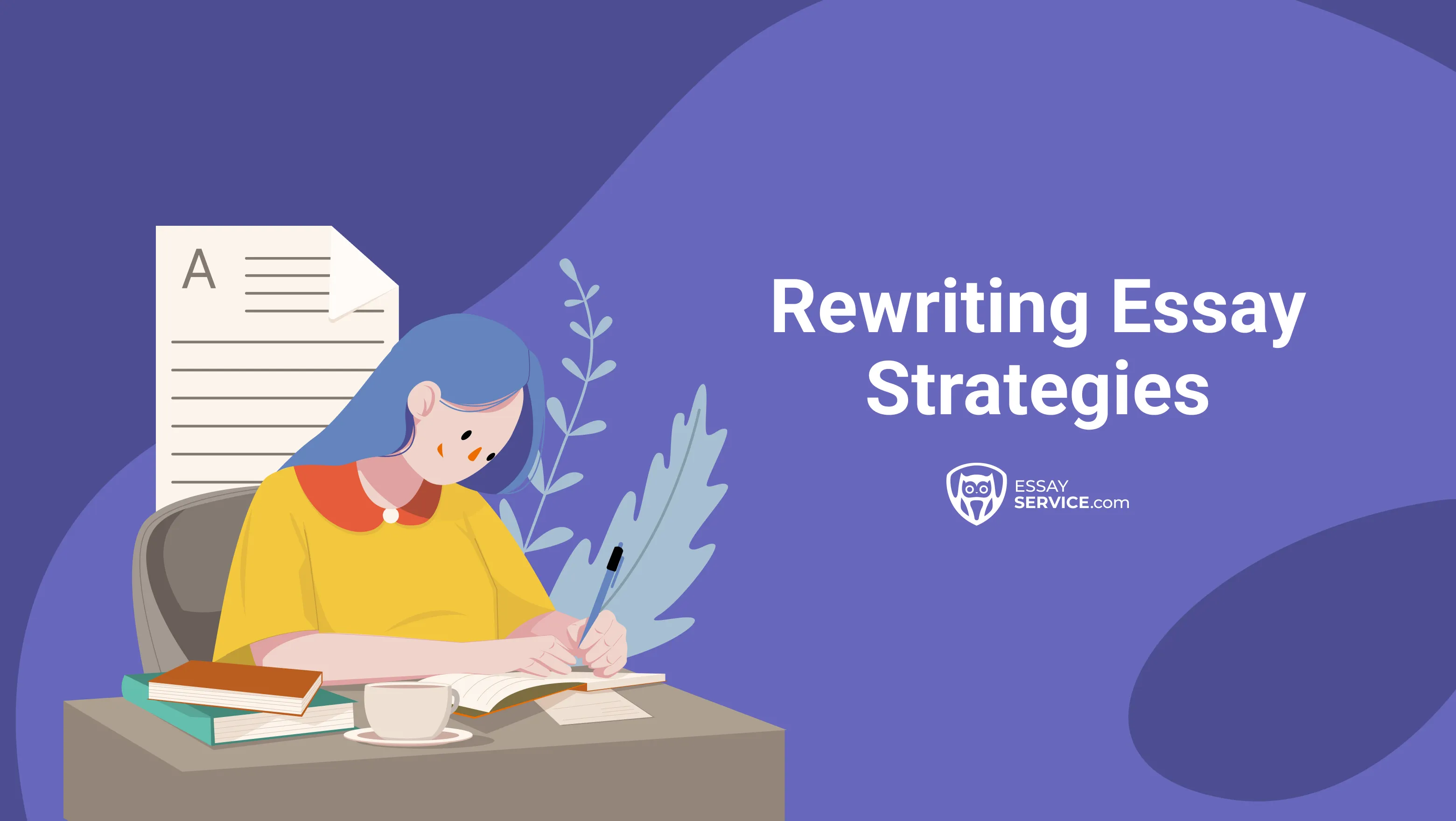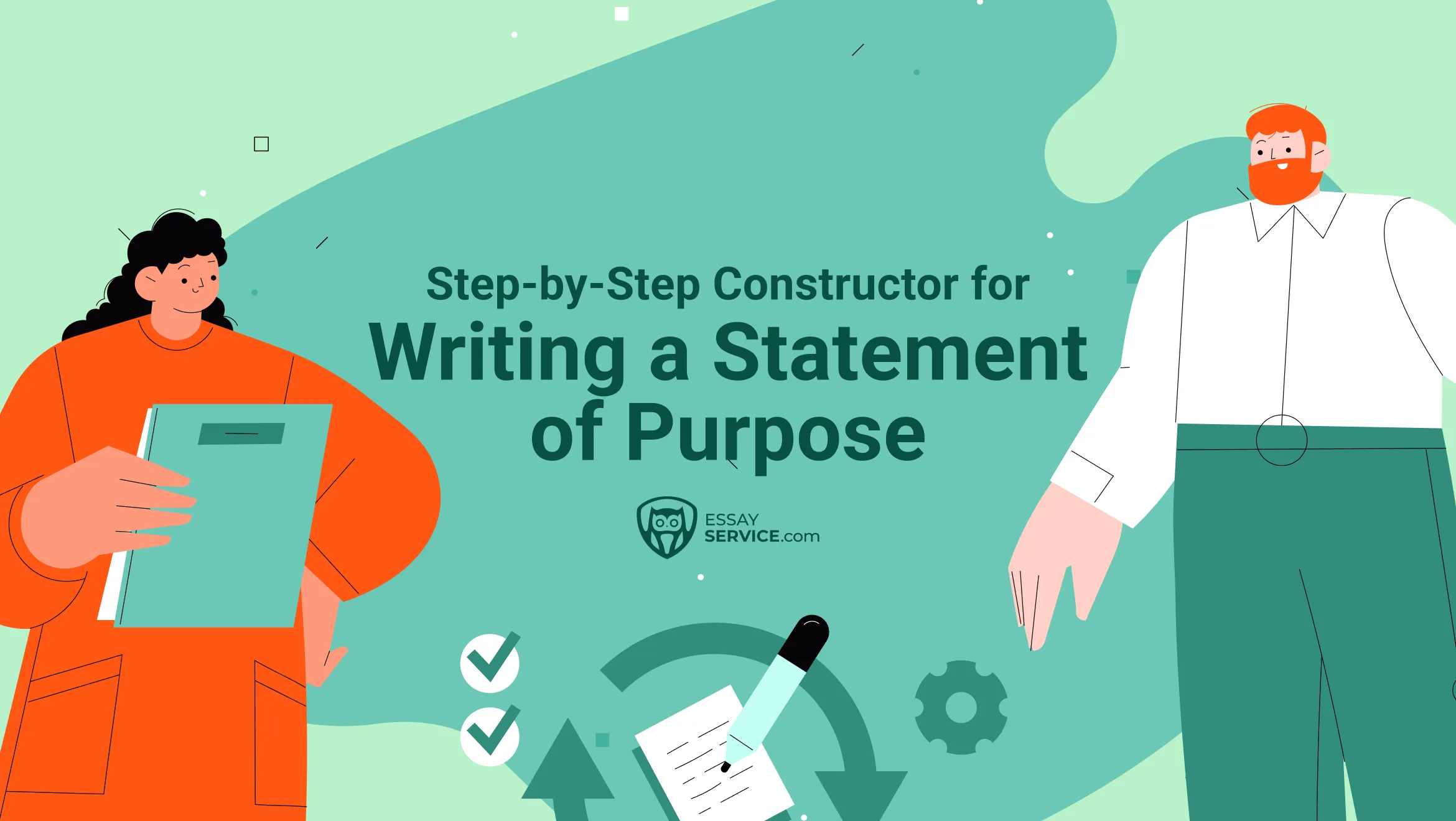Starting a college essay can feel like staring at a blank page, unsure where to begin. But once you know the key steps, it becomes much more manageable. Here's how to get from an idea to a finished essay:
- Brainstorm ideas
- Outline your essay
- Write a compelling introduction
- Develop clear and focused body paragraphs
- End with a memorable conclusion
Once you're done writing, don't skip the crucial steps of revising, editing, and proofreading.
This article is here to help you understand how to write your college essay. It walks you through the essentials - whether it's for admissions or an assignment. Follow along, and by the end, you'll feel confident tackling any college essay. And if you need extra help, our EssayService experts are here to make the process easier and stress-free.
Understanding What is a College Essay
A college essay shows admissions officers who you really are. Beyond your grades, test scores, and extracurriculars, it's a way to share your personality, values, and what makes you unique. This essay helps colleges see the person behind the application, such as what motivates you, how you think, and what you can contribute to their community.
- What drives you?
- What challenges have you faced?
- What do you care deeply about?
Answer these questions in a clear and honest way for admissions officers to connect with you on a human level. They are looking for authenticity, reflection, and a sense of purpose, not a polished list of achievements.
When done right, your essay can make a lasting impression. So, focus on your unique perspective, be truthful, and make sure your essay reflects your voice.
Choosing a College Essay Topic
One of the most important steps in the writing process is selecting a college essay topic. It starts with brainstorming. Think about moments that shaped you, challenges you've overcome, or passions that define who you are. Focus on something deeply personal and unique. The best topics are often about experiences that reveal your values, personality, and perspective.
Your topic doesn't have to be academic or overly impressive. Admissions officers aren't looking for a Nobel Prize-winning discovery. They're looking for authenticity. Maybe it's a lesson you learned from failure, a meaningful relationship, or a hobby you're passionate about. The key is that the topic matters to you and reflects something genuine.
Avoid common mistakes, like choosing overused themes (winning a big game, a mission trip, or generic leadership roles), unless you can bring a fresh angle. Another pitfall is writing about what you think the admissions committee wants to hear. That often comes across as insincere.
Ultimately, the topic you pick should help you tell your story in a way that's memorable and personal. Take time to explore different ideas, and don't rush the process. A meaningful topic is the foundation of a powerful essay.

Creating a Strong Thesis Statement for College Essay
A thesis statement is the central idea that ties everything together, giving your essay clarity and direction. A good thesis should reflect your main point and set the tone for your story.
Start by asking yourself: what's the one thing I want the reader to take away from my essay? Your thesis should answer that question clearly and concisely. For example, instead of vaguely saying, "Volunteering changed my perspective," you could write, "Volunteering at a food pantry taught me the value of empathy and the power of community."
Make sure your thesis is specific, personal, and focused. Avoid broad or generic statements that could apply to anyone. It should give the admissions officer insight into who you are and what your essay will explore.
Once you have your thesis, let it guide the structure of your essay. Every paragraph should connect back to it in some way, reinforcing your main point. With a strong thesis statement, your essay will feel cohesive and purposeful, leaving a lasting impression.
Outlining Your College Essay
Now, the outlining comes in. With a solid college essay outline, you'll know where to start, what to include, and how to end confidently. You should start by breaking your essay into three main parts: introduction, body, and conclusion.
Your introduction should include a hook to grab attention and lead into your thesis statement. Keep it concise but compelling.
Next, outline your body paragraphs. Each paragraph should focus on one key point that supports your thesis. List the main ideas, then note specific examples or experiences you'll use to bring those ideas to life. Include transitions between paragraphs to maintain a smooth flow.
Finally, plan your conclusion. Think about how you'll tie everything together and leave a lasting impression. Avoid merely summarizing; instead, end with a reflection or a final thought that resonates.
Writing College Essay Draft
College Essay Introduction Hook
The first few sentences of your essay can make or break it. A strong college essay introduction should grab the reader's attention immediately. Start with something engaging—an anecdote, a surprising fact, a thought-provoking question, or even a bold statement.
For example, instead of saying, "I've always loved science," you could begin with, "The first time I held a microscope, I realized I wasn't just looking at slides—I was peering into a world of infinite possibilities." A weak introduction, on the other hand, might feel generic or vague, failing to draw the reader in.
The hook should naturally lead into your thesis, giving context without overwhelming the reader with unnecessary details. Remember, the goal is to make the admissions officer want to keep reading.
College Essay Body Paragraphs
In the college essay body paragraphs, you develop your main points and back them up with vivid details. Use concrete examples and personal stories to illustrate your thesis. Avoid generic statements; instead, show your experiences through sensory language and imagery.
For instance, rather than saying, "I learned a lot of volunteering," describe a specific moment: "Helping Maria with her math homework and seeing her confidence grow taught me the impact of patience and encouragement."
Each paragraph should focus on one idea, building on the one before it. Use transitions to create a seamless flow, guiding the reader effortlessly from one point to the next.
College Essay Conclusion
Your college essay conclusion is your final chance to make an impression, so make it count. This is where you tie everything together, showing how your experiences or stories reflect your values and goals. Avoid clichés like "In conclusion," or summaries that repeat what you've already said.
Instead, leave the reader with a strong, memorable closing. Reflect on what you've shared or end with a thought that looks to the future. For example, "These experiences have fueled my passion for making a difference, and I'm excited to bring that drive to [college name]."
A powerful conclusion resonates with the reader, ensuring your essay stays with them even after they've moved on to the next application.
Revising and Editing Tips for College Essay
Even the best essays need refining to shine. So, make sure to revise and edit your essay to its final, polished form. This step ensures your story is clear, engaging, and entirely yours.
Start by reading your essay aloud. Does it flow smoothly? Are your ideas clear? Focus on improving structure, cutting unnecessary details, and ensuring each paragraph builds on the one before it. Don't hesitate to rewrite sections for clarity or impact.
Once revisions are done, move on to editing. Check for grammar, punctuation, and spelling errors. Use tools like spell check, but don't rely solely on them - read carefully. Pay attention to style and tone, ensuring your essay sounds like you. Avoid overly formal or casual language.
Feedback is crucial. Share your essay with trusted teachers, friends, or family members who can provide constructive criticism. Listen to their suggestions, but keep your voice and personality intact. Multiple drafts are the secret to a standout essay - polished, clear, and authentically yours.
Tips for Writing a College Essay
Crafting a compelling college essay requires focus and strategy. Here are key tips to guide you:
- Start early to avoid last-minute stress.
- Choose a topic that reflects your personality and values.
- Be authentic—write in your own voice, not what you think admissions officers want to hear.
- Follow the prompt closely and stay within the word limit.
- Use vivid details to make your story memorable.
- Avoid clichés and overly broad statements.
- Keep your thesis clear and focused throughout.
- Transition smoothly between paragraphs for better flow.
- Edit and proofread carefully to catch errors.
- Get feedback, but ensure the final essay is true to you.
Mistakes to Avoid When Writing A College Essay
When writing a college essay, it's easy to fall into a few common traps.
- One big mistake is using big words to impress. Admissions officers aren't looking for fancy vocabulary - they want to hear your authentic voice.
- Another issue is trying to cover too much ground. If you try to fit in too many ideas, your essay can end up feeling unfocused. Pick one topic and explore it deeply instead of skimming the surface.
- Rewriting your resume in essay form is also a mistake. This essay isn't about listing accomplishments - it's about sharing a personal story or insight that shows who you are.
- Ignoring the word limit or prompt is a sure way to lose points. Colleges want you to follow instructions - it shows you can pay attention to details.
- Lastly, avoid writing what you think admissions officers want to hear. A generic, polished essay won't stand out. Instead, focus on being yourself and telling your unique story. That's what will make your essay memorable.
The Bottom Line
Writing a college essay doesn't have to be a headache. Tackle it step by step:
- Understand the purpose of a college essay.
- Brainstorm and choose a meaningful topic.
- Create a strong thesis statement.
- Outline your essay to stay organized.
- Write a captivating introduction, compelling body paragraphs, and a strong conclusion.
- Revise and edit multiple drafts for clarity and polish.
- Seek feedback from others, but ensure your voice stays authentic.
And, if you need a hand with brainstorming, writing, or editing, EssayService is ready to help you create a standout essay without the stress.
Frequently Asked Questions
What is a College Essay?
A college essay is a personal statement that's part of your college application. It allows admissions officers to learn more about you—your personality, values, experiences, and goals—beyond grades and test scores.
What Should My College Essay Be About?
Your essay should focus on something personal and meaningful to you. It could be a challenge you overcame, a passion you pursued, or a moment that shaped who you are. The key is to tell a story that highlights your unique perspective.
How Long is a College Essay?
Most college essays range from 500 to 650 words, depending on the application requirements. Always check the specific word limit for each college you're applying to.
.png)
Jaroslav specializes in helping students unlock their creative side and let it shine. Armed with his Bachelor’s degree in creative writing, he imparts his advice on making communication effective and engaging.
- Kelly Mae Ross, Haynie, D., & Moody, J. (2014). How to Write a College Essay. US News & World Report; U.S. News & World Report. https://www.usnews.com/education/best-colleges/articles/how-to-write-a-college-essay
- Reynolds, P. (2022, July 26). 12 Strategies to Writing the Perfect College Essay. Harvard Summer School. https://summer.harvard.edu/blog/12-strategies-to-writing-the-perfect-college-essay/
New posts to your inbox
Your submission has been received!



